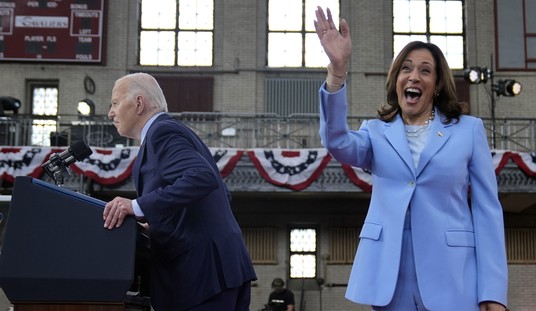Lee Smith’s article at Tablet Magazine discusses what Newt Gingrich called “the ‘Obama Hostage Crisis.'” Egypt is planning a show trial for 19 American NGO organizers; and they have plenty of public support in the Cairo streets.
A December Gallup poll showed that 71 percent of Egyptians oppose U.S. economic aid of any sort, and that 74 percent oppose “direct U.S. aid to Egyptian civil society organizations.” … It’s worth noting how these December poll numbers track in parallel to last March’s constitutional referendum. That vote gave the Egyptian electorate a choice: Either vote on a few amendments to the 1971 constitution and push ahead to elections, or write a new constitution, a process that would delay elections.
The army and the Islamists favored the first, while the revolutionaries who brought down Mubarak opted for the second, since it would give them a chance to organize coherent political entities capable of winning seats in parliament. Ultimately, three-quarters of the voters sided with the army and the Islamists. Only one quarter voted with the revolutionaries—presumably the same quarter of Egypt’s population that polled in favor of continued U.S. aid to civil society, support that gave rise to the revolution itself.
In Smith’s view, the revolution sown by revolutionary minority, but it has been harvested by the Islamists and the Army. The trial of Secretary La Hood’s son and 18 others is simply the consequence of that fact. Ironically, the revolution was hatched under Mubarak, whose authoritarian rule now seems like a liberal era compared to what might follow.
The most curious question is this: If so many Egyptians are against U.S. aid money to Egyptian civil society, how did organizations like the International Republican Institute and its counterpart, the National Democratic Institute, manage to do their work for so long? If they are charged with operating without a license, but had been working in Egypt regardless for many years before the arrests, how did they get away with it? Because Hosni Mubarak let them.
The man who now lies in a hospital bed in Sharm el-Sheikh under house arrest and is typically blamed for everything that has gone wrong in Egypt over the last 30 years is the same man who was at the helm as Egyptian civil society grew. The revolutionaries who toppled the Egyptian president arose under him. The middle-class, ostensibly liberal-minded, and Western-oriented demonstrators who protested in favor of democracy were drawn from the nonprofit organizations, independent media outlets, and private-sector enterprises that had all come about under Mubarak.
But if Obama’s plan to lead the Egyptian revolution “from behind” now lies in same hospital bed as the dying Mubarak, Egypt itself is not far behind. Al-Arabiya estimates that the military consumes anywhere from 10 to 30% of Egypt’s GDP, depending on which figures are used. The Army almost literally owns Egypt, and the nation’s current economic directly hurt it.
In an article published by The Majalla on 19 January 1988, about “the military industry in Egypt,” it was reported that Egyptian military spending had doubled since the early 1970s, and that by 1986 Egypt was the seventh largest exporter of cheap weaponry in the world. However, after signing the Camp David Accords, Egypt began to import higher quality US-made arms. Military economic activity transformed over time to incorporate civilian industrial sectors, in order to ensure that revenue for the military budget was not entirely linked to the state. Over time the Egyptian armed forces began to own factories producing food, cooking oil and fruit juices, alongside giant construction firms, and other institutions producing textiles or electrical appliances. Since the 1980s, military factories even embarked on joint ventures with foreign manufacturers to produce automobiles, whilst the military’s investment portfolio also included gas plants, cement factories and so on. If you want further evidence of the proportion of the economy that is run by the military in Egypt, last December the military offered to lend the Egyptian government nearly a billion US dollars, which means that this institution has large reserves of undeclared foreign currency (New York Times, 28 December, 2011).
But it is hardly “too big to fail”. Eventually the money runs out, as it has for even Iran, which was the scene of Jimmy Carter’s Hostage Crisis. Reuters reported that Teheran can no longer pay India for rice.
NEW DELHI (Reuters) – Iranian buyers have defaulted on payments for about 200,000 tonnes of rice from their top supplier India, exporters and rice millers said on Tuesday, a sign of the mounting pressure on Tehran from a new wave of Western sanctions
The default prompted the head of the All India Rice Exporters’ Association to call on members to stop rice exports to Iran based on credit, which would be a fresh blow to a country where imports of staple foods are already being hampered by sanctions …
In other supply disruptions, five deliveries of grain to Iran were diverted to new destinations because payments were held up, ship tracking data showed last week. Other cargoes are sitting offshore Iran because of difficulty with payments.
Under a tightening grip of sanctions, the country of 74 million people is finding it increasingly difficult to repatriate the hard currency from its crude oil exports, its major foreign currency earner, that it needs to pay for shipments of food and other imports.
A sharp drop in the value of the rial is adding to Iran’s import costs and the financial sanctions make it difficult for traders in the country to channel import payments through unofficial routes involving middlemen based in Dubai.
Iran’s difficulties are probably as nothing to the problems facing Egypt, which doesn’t even have oil and is critically dependent on imports for food. But it does have 19 Americans to trade. When economies which produce nothing but trouble run out of money, the situation can go lots of places and it’s not always easy to lead from behind.
How to Publish on Amazon’s Kindle for $2.99
The Three Conjectures at Amazon Kindle for $1.99
Storming the Castle at Amazon Kindle for $3.99
No Way In at Amazon Kindle $3.99, print $9.99









Join the conversation as a VIP Member